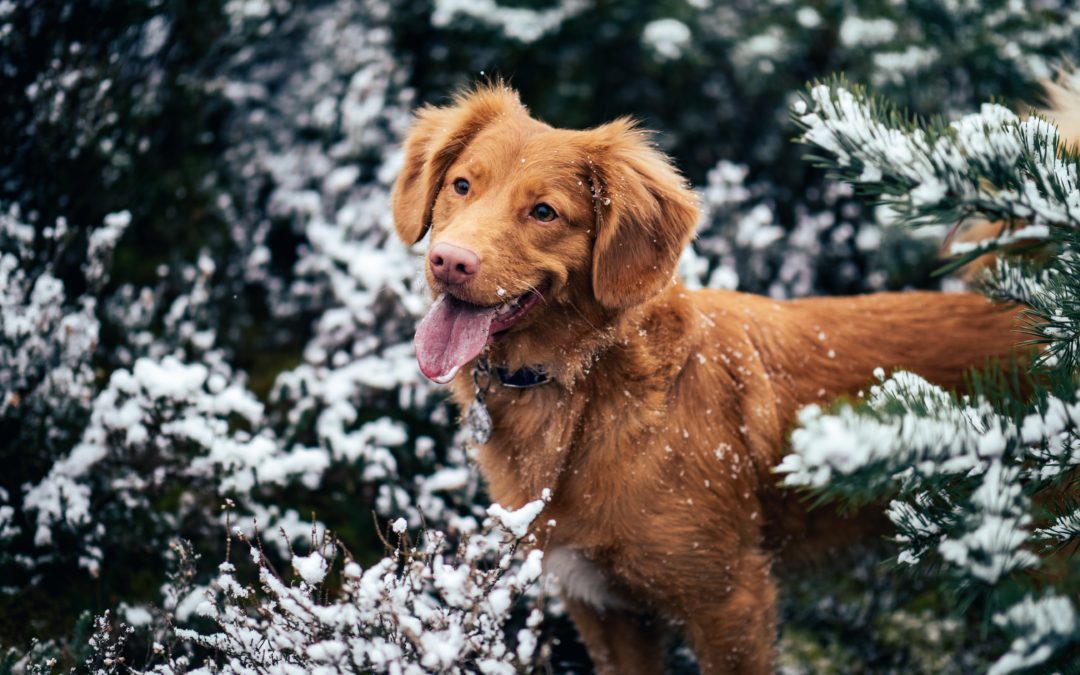Mandi Broadbent, CSR
Cold, chilly, and wet weather is everywhere this time of year! Did you know that the cold can be just as dangerous to your pets as the heat, if not worse?
Preiser Animal Hospital Urgent Care & Wellness Appointments wants to help remind you of a few Winter Weather Pet Tips that will help your four legged friend in the cold.
Keep Those Annual Check-ups Current
While we don’t necessarily recommend “winterizing” your pets per se, an ensuring and thorough check-up never hurts. An appointment with your vet can give you an indication if there are any concerning issues before the harsher weather hits. Senior pets are exceptionally susceptible to the effect of the cold, as well as pets with arthritis, diabetes, or compromised immune systems. As your pet gets older, or has systemic issues, Preiser Animal Hospital Urgent Care & Wellness Appointments recommends bringing your critter in every 6 months for a complete check-up examination to make sure your pet is happy and healthy for as long as possible.
Let Your Pet Decide
We all have the friend who wears shorts in the snow while we stand freezing in our parka, right? Well, just like humans, every animal has a different tolerance for the cold weather. Some breeds, like huskies or malamutes, enjoy the cold and love the snow! You may even find these guys trying to get into the freezer in the summer months. Other breeds, like chihuahuas or terriers, may not be big fans of those winter walks and tend to just shake and whimper. Cold weather is an individual preference, one you should allow your dog to form for themselves. If they don’t seem to like being outside in the winter, don’t force the issue. Not everybody likes the cold.
Limit Outdoor Time
It’s a good idea to limit your pet’s time outside, even if they don’t seem to mind the cold. This means walks, potty time, and playtime should be kept to a minimum once the temperatures drop. Pets with long coats and thicker hair tend to be a little more tolerant of the cold, but they can still be at risk. Short haired critters or pets with thinner coats are effected more because they have much less protection against the elements. And short-legged pets, or pets who will likely come in contact with more snow and ice on the ground (think dachshunds, basset hounds, and corgis) need to be particularly careful as prolonged direct exposure to snow, ice, and de-icing chemicals can often cause skin and paw irritations.
Keep Them Warm…But Not Too Warm
Making sure your pet is comfy is important no matter what the weather outside is, but that is extra true in extreme temperatures. Try to have several spots in your house that are “warm spots”, with extra blankets and comfy pet beds, away from windows, drafty doors, and vents. However, be careful… while tempting to let your furry friend snooze soundly on top of floor and baseboard heating vents when it gets chilly out, such behaviors can be dangerous, and your pet can even get themselves caught in the vent! Prolonged direct heat exposure, from laying directly on-top of vents for example, can lead to skin irritations and even burns or blisters depending on how long your critter was “cooking” on the vent, and how hot the metal grating gets.
If You Have To Go Out, Be Smart
Exposure to the elements – dry and cold air, sleet, snow, and chilly rain – can cause cracked, raw, and chapped paws. Not to mention dry, itchy, and flaking skin.Using winter pet clothing would be ideal, but if your four legged friend isn’t a fan of coats and booties, there are steps you can take that will help. Try bringing a towel on long walks to help clean off the paws and tummy by removing snow, ice, salt, and winter chemicals. You can also massage petroleum jelly (or an over the counter paw protectant like Musher’s Secret) into the paw pads before going outside to give your pet an added layer of protection on their feet.
Not all regions experience cold, and not all regions experience extreme cold – but here in Northern Illinois, we have seen some particularly harsh winters in the recent years. Those “Polar Vortexes” and sub-zero temperatures are absolutely no fun or your four legged friends and these handy winter weather tips can make surviving the cold with your pet a little easier.
And remember, if you can’t be outside without your jacket and gloves, and the cold hurts your exposed skin after only a few minutes, that’s a good sign that your critter probably shouldn’t be outside too long either.
If it’s too cold for YOU – it’s too cold for THEM.

